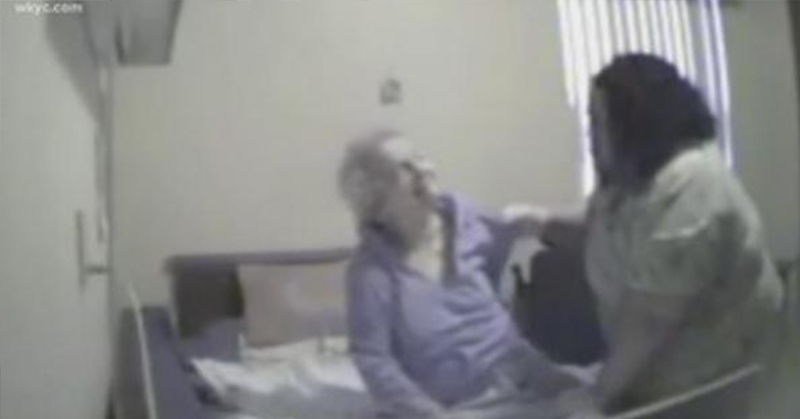The transition for the elderly from living in their own home to a long-term care home can often be a difficult one. They have to leave behind many of their belongings, say goodbye to their neighbors, and move away from comfortable, familiar surroundings. The decision to move is tough on everyone involved, including children and grandchildren.
Nursing Homes

Getting into a nursing home is also difficult – waiting lists are long and the homes themselves can be quite expensive. Often it is the family that is faced with trying to pick a home that they think their parent will be happy in, that provides excellent care, and is also within their budget. Imagine going through the whole emotionally, physically, and mentally draining process of getting your aging parent into a nursing home only to find months later that they are being abused there. This is an unfortunate reality for approximately 5 million residents of long-term care facilities in the United States. This represents nearly a quarter of all people living in nursing homes (2). Thankfully, people are starting to fight back, and the state of Ohio has taken notice.
New Ohio law would allow for security cameras in nursing home rooms

In 2019, more than 30,000 cases of elder abuse were reported in Ohio. That number is not only alarming to Ohio lawmakers because it is high, but because they also know that it doesn’t include the number of cases that go unreported. The elderly, and specifically the elderly with conditions such as Alzheimer’s or dementia, are particularly vulnerable because of memory issues or the inability to communicate with others effectively.
This also doesn’t include the number of people who do not have family checking in on them. If they are being abused, there is no one there to report it. (1) The new law will be under a bipartisan bill that will give residents the power to choose to have surveillance cameras in their rooms. The bill is called Esther’s Law, named after the mother of Steve Piskor, an Ohio resident who pushed for change after his mother was abused.
Read: Financial Elder Abuse: How Greedy Children are Cashing in on Dementia
Esther’s Story

Esther Piskor was 78 years old and living with dementia. Her son, Steve, knew that he was unable to provide the care she needed, so he moved her to a long-term care home. He began to have suspicions that workers at the home were abusing his mother, so he installed a hidden camera in her room. After 6 weeks of secret filming, his suspicions were confirmed: he caught 8 aids abusing her (1). Currently, there is no law preventing residents from putting cameras in their rooms, but it is up to the nursing home to allow it. Esther’s Law will change that. (1) Ohio will be the first state that will pass a bill allowing all types of nursing homes to install cameras, with specific signage in the rooms alerting people that there are active cameras inside. (1)
Abuse in Long-term Care

Nursing home abuse is defined as any type of harm that occurs to senior citizens living in long-term care facilities. This includes physical, emotional, sexual, financial, and other types of abuse and injury. (3) Reports of seniors being neglected, beaten, sexually assaulted, and financially exploited are all too common. In most cases, the resident involved is powerless to do anything about it or report it. If it comes down to their word against the nursing home staff, often they aren’t believed due to a perceived lack of mental capabilities. (3)
What you can do to help

If you are visiting a nursing home or have a loved one living there, watch carefully for signs of abuse (4):
- Tension between the caregiver and the resident
- A personality or behavior change, including withdrawal and depression
- Unexplained injuries, bruising, or signs of restraint
- Sudden weight loss
- Unsanitary living conditions
- Unusual financial withdrawals
Make sure you know yours and your loved one’s rights in that jurisdiction.

Be sure to check in on your loved one as frequently as possible. If you are unable to visit, send another sibling or trusted friend to make sure they are being visited as often as possible, especially if abuse is suspected. If you do think your loved one is being abused, report it immediately to the home or facility as well as to the Ministry of Long-Term Care at 1-866-434-0144. (4) Elder abuse does not have to be the norm, and it can be prevented. Together, we can fight for changes to laws such as Esther’s Law in Ohio to ensure our loved ones later years are comfortable and enjoyable.
Keep Reading: Supermarket Introduces Unique Initiatives To Help Fight Loneliness
Sources
- https://www.wtsp.com/article/news/local/ohio/ohio-bill-would-allow-families-to-place-cameras-in-rooms-of-elder-care-patients/95-b3c950eb-8b44-433c-a963-856761865991
- https://www.nursinghomeabuse.org/nursing-home-abuse/statistics/
- https://www.nursinghomeabusecenter.com/nursing-home-abuse/
- https://www.bogoroch.com/elder-abuse-and-neglect-in-nursing-homes-and-long-term-care-facilities/
- https://link.springer.com/chapter/10.1007/978-3-030-25093-5_10
- https://link.springer.com/chapter/10.1007/978-981-13-8610-7_4

